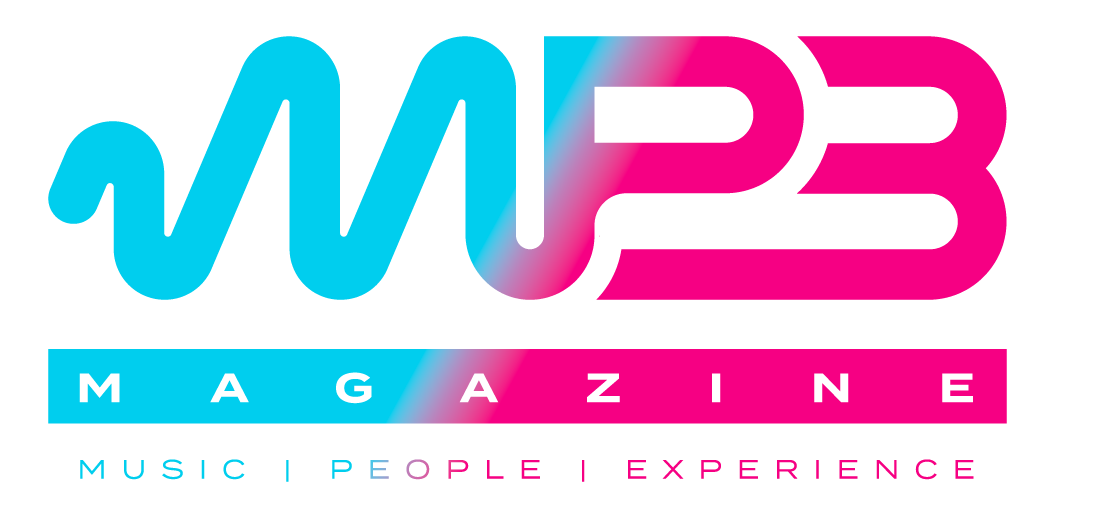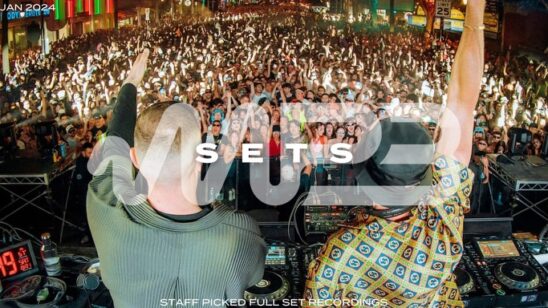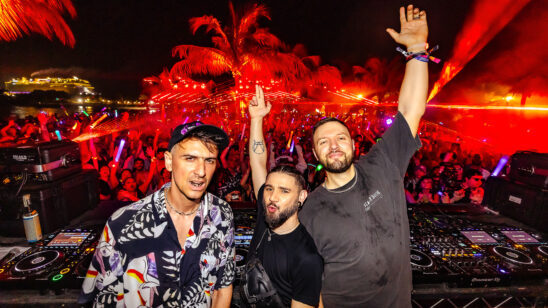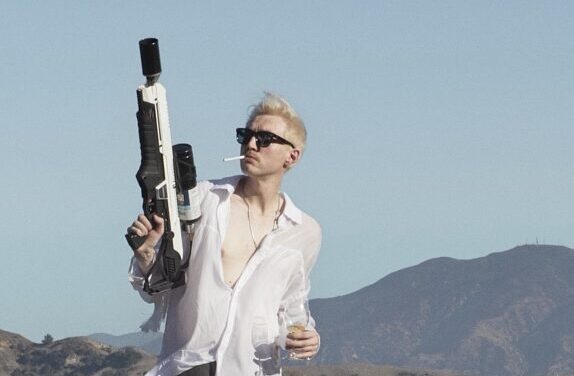
Eliminate Sheds Light On His Debut Album, ‘Get Off The Internet’
In 2020, as the world paused, the LA-based, multi-faceted artist known as Eliminate embraced the digital frontier, captivating audiences by playfully manipulating peculiar samples into viral beats. The hit “Turning My Cat’s Meow Into Dubstep” not only showcased his eccentric brilliance but also catapulted his cat, Walter, into internet stardom.
With a thriving YouTube channel boasting over 230,000 subscribers and a TikTok page with 390,000 followers, Eliminate exemplifies his genius by transforming any sound or sample, no matter how unconventional, into magnetic music moments. Additionally, his infectious and comedic personality, along with entertaining, informative sound design tutorials and content, has led Eliminate to become one of the top music production streamers across Twitch.
Now, with his highly anticipated debut album, Get Off The Internet, Eliminate pioneers a genre-defying exploration, infusing flavors from dubstep to hyperpop. Breaking electronic music norms, the album stands as both a musical spectacle and an inspiring call for listeners and artists to push boundaries through experimentation.
We had the honor of chatting with Eliminate on the inner workings and inspirations behind this groundbreaking project. Check out what he had to say about his inaugural LP below.
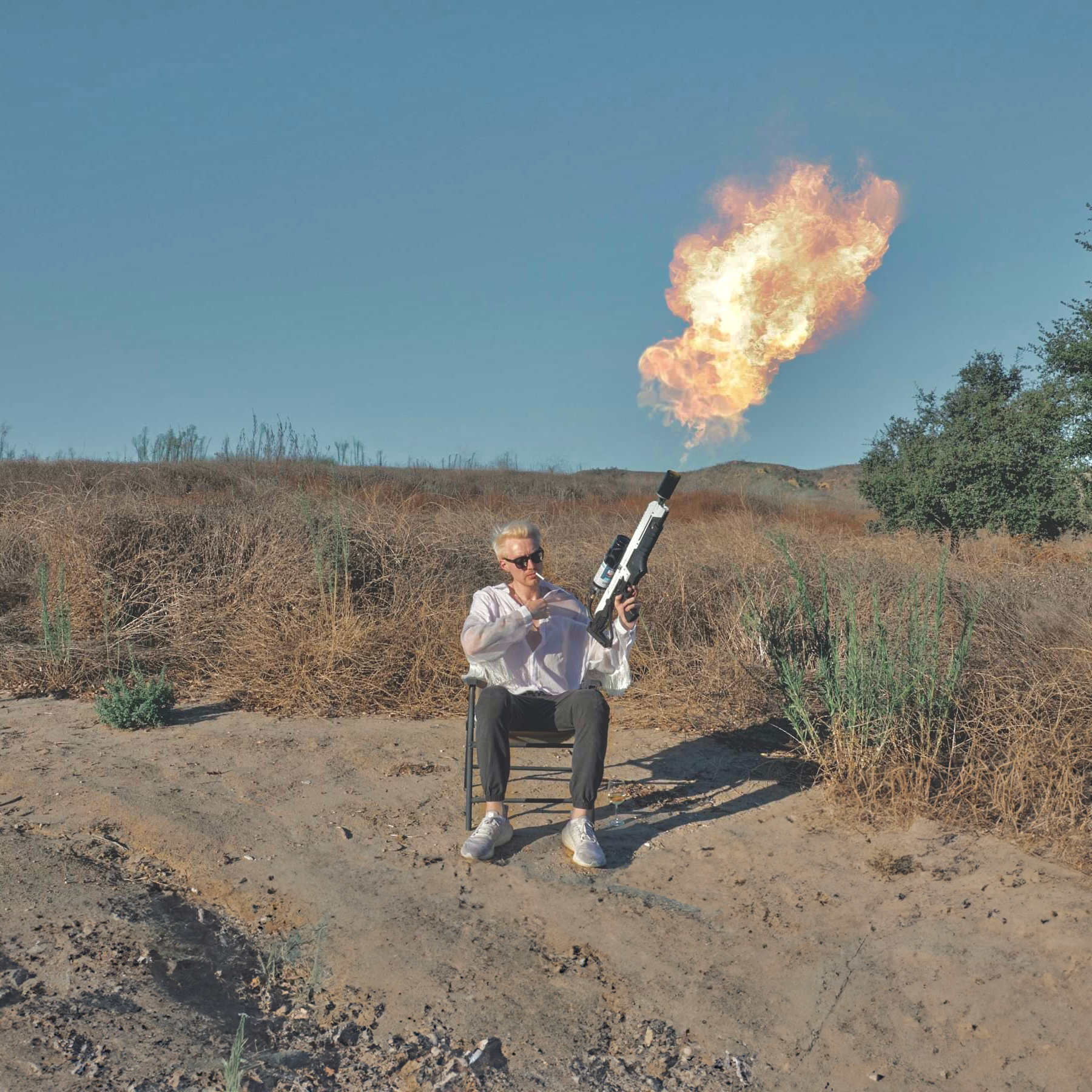
How did you come up with the concept of your debut album Get Off The Internet, and what inspired the title?
I actually did not even come up with the title itself, I was in a session with fussy last summer, and I was showing her this beat I had started that same morning. It was a simple chord progression that had random computer foley in it (keyboard typing, mouse clicks, etc.).
We were just sitting there jamming to it and she was looking through her notes and found something she had already written down previously, which was “hey stupid idiot, get off of the internet.” As soon as she said it out loud, I said, “yes, I love that, it’s perfect.”
I kept working on the beat while she wrote the rest of the lyrics and we recorded everything that same day, and by night I had the first demo of “Get Off The Internet.” I sent it to my manager and he responded ‘Get Off The Internet’ is kind of a fire album title, and I told him I was thinking the exact same thing.
Furthermore, I had been working on the album for about six months at this point and had not pinpointed a title other than a few concept ideas. But once we had this locked in, it was much easier to shape the rest of the album and all the ideas I had already started around it.
Can you elaborate on the genre-blending adventure that you take the listeners through in this LP? What was challenging about incorporating elements from dubstep to hyperpop, and how did you overcome it?
It really was not too challenging to create multiple genres throughout the album; it was something I think was easier for me to do rather than if I had stuck with one or two genres through the whole thing. I have always found it beneficial to always be experimenting with new genres while still having it sound like something you as an artist made.
Being a dance music producer, I always have the thought in the back of my head that I need to make “dance music,” aka something people can dance to. I think that was more challenging than anything (I always had the thought, ‘would I play this in a set?’). The way I overcame that was to recognize that in an album format, not everything needs to be a dance floor banger.
Some of the songs, such as “Get Off The Internet,” “f_ck you,” and “Poison Oak” are more of just a listening experience rather than something I would necessarily drop in a DJ set. However, I plan on making lots of VIPs and edits for my tour so I can incorporate the whole album into the set in multiple ways.
Lines like “Hey stupid idiot, get off of the internet” in the album’s title track are sure to leave a lasting impression. What inspired these bold and rebellious lyrics, and what message are you trying to convey?
I am not sure if there was an exact message or meaning in mind when fussy wrote them down originally, other than it just being a fun lyric. When I heard it, I immediately thought “wow it’s me, I’m the idiot.” Over the pandemic I started livestreaming on Twitch, making YouTube videos, moving over to TikTok, just constantly posting. I will often make jokes on stream about how I need to log off, perhaps even touch grass.
The message that conveys to me is not in the boomer sense of ‘we are slaves to our phones and social media’ or anything like that, I actually love the internet, I think it is dope as hell. It is more of an ‘ok that’s enough internet for today champ; go call your mom, go for a walk, get some sun on your face’ vibe that applies to me and probably a lot of other people.
Which track on the album pushed you the most out of your comfort zone, and why?
100% would be track nine: “f_ck you.” I have never in my life used my voice to sing actual lyrics on a song and then go through with releasing it. I still have the voice note from a random night in August last year at like 3 AM or something. It is just me half asleep singing “f****ck youuuuu” in the melody of the song.
That same week, I decided to try to translate it into music. I sang all the melodies (terribly), then luckily was able to make them listenable through the power of autotune and vocoder plugins. The cool thing about this song is that the actual beat drop is just a resampled version of my vocals, it is just completely distorted and LFO’d into a cool pattern that follows the melody.
For the chorus, I decided to just go for the full jam band, hands waving in the air, sunset vibes. I added layers of acoustic guitar, live drums, shakers and more.
It is the funny wild card song on the album. I was scared to release it because I still think my voice sounds stupid, but ultimately I think that is the beauty in the song. “Yeah I can’t sing, f_ck you, here’s me singing.” Also, I told my mom to skip this song when listening to the album.
How has your experimentation on YouTube and relationship with social media impacted the overall sound and structure of Get Off The Internet?
YouTube definitely helped me diversify the album. Doing so many sample flips and beat battles over the course of several years, I am basically forced to come up with something new each week. I have made so many different genres just through YouTube challenges, which are all just for fun and do not actually get released.
When the time comes to actually work on music I am going to release for my artist project, taking that experience and applying it is beneficial. I get to hear tons of new artists when I do demo streams or beat battles, which is motivating. Hearing all the different styles from a community of producers that has become a lot more diverse over the years can help with keeping myself diverse and wanting to explore new lanes.
What were some of the highlights when working with Flux Pavilion and meesh on “Dawn”? What is your approach to sharing your process and experience when making tracks, in relation to your YouTube breakdown of “Dawn”?
I mentioned in the video I posted that it was really cool to see this song fully come together. One of the main highlights is when I finally had the session with my writer friends (fussy and Greg) and got to actually put a topline over it, as well as the ‘crowd oh’s’ over the big melodic build up.
Up until then, I had strictly been working on it as an instrumental, but once I got lyrics and vocals, it started to form together exactly how I had been imagining it in my head. Another highlight was finally getting meesh in the studio (we had been planning it for several months but she had to get out to LA first) and getting the vocals recorded, from there I could finally work on the rest of the song with no restrictions.
My approach to sharing my process with others has always been the same. I have always said (and still do to this day) that I do not ever consider myself a ‘teacher’ or anything like that, mainly because sometimes I genuinely cannot explain the technical process of what I am doing. If someone asks me to break down in professional terminology the exact method of a certain production technique or plugin I am using to make a certain sound pop, I will usually be like “idk I just moved these knobs until it sounded good.”
But I still think there is value in sharing how I made something even if I might sound like an idiot trying to explain it. I show the project files and the different layers, as well as just the general structure of a song, which can be beneficial for other producers to get a look at. I am always stoked when I get to see a song I listen to broken down in front of me, and I want to be able to share that with others myself.
Your song “f_ck you” seems to be a unique expression of raw emotions. Could you share insights into how you took on the creation of this track, especially making and weaving in the choir-like vocal?
I cannot exactly pinpoint what was going through my head the night I made the voice note of the lyrics while half asleep. I like to think that the emotion conveyed is all in good fun, I did not intend any malice when writing “f_ck you, suck my d*ck). Everyone I have shown the song to laughs; I think the bubbly melody helps with that. The lyrics are something I would say after I stubbed my toe or dropped a piece of bread on the ground, minor inconveniences.
Creating the track was a challenging experience, mainly from trying to get my own vocals to a level where I could listen back to them and not cringe myself into a coma. Once I had them dialed, I just started doing unnecessary levels of resampling and sound design until I landed on the distorted, synthy wobble sound you hear when the drums come in. After that, I sort of built into the big chorus moment, and the song was pretty much written that week.
It was a few months later that I added the emotional piano bridge into one last big chorus. There is beauty in never switching the lyrics up once throughout the whole song, it is very easy to hear and memorize. I caught myself humming it at random times out of the studio when I was making it.
How do you navigate the balance between experimental sonic elements and maintaining a cohesive listening experience throughout Get Off The Internet?
Experimenting with sound is something I have always loved about producing. It keeps it exciting being able to just keep experimenting until you randomly come across a sound that you are really stoked about, maybe even something you have never heard before. I also love writing melodies, just riffing around until you come up with something that sticks with you.
With those two things in mind, I do my best to combine them in a way that is not just mashing them together. You cannot put experimental sound design and melodic chord arrangements in a room together and expect them to just figure it out. You have to set up a little table with some snacks, maybe a few drinks as well. Introduce them to each other and then begin to morph an audible experience that makes sense. I took this approach to nearly every song on the album.
As the album explores unconventional corners of the internet, are there specific online influences or experiences that directly inspired certain tracks?
I got to work on “Poison Oak” with I Set My Friends On Fire, a band that I listened to in early high school. Speaking for myself, my time on the internet during that era was entirely taken up by MySpace, the first social media site I ever used (probably the same for a lot of people).
There is not really any direct relation to that and what I ended up making with the song, other than I was trying to make a melody that I would have heard during that time and listened to myself. Something I would have set my profile song to. It definitely gives me a bit of nostalgia every time I hear it. It was also just really cool being able to make this song with Matt (the singer), knowing that 16–17 years ago I was jamming to him in my mp3 player’s earbuds.
What are the most intriguing anecdotes or stories from the creative process of producing Get Off The Internet that you would like to share with your fans?
I wrote the first track “thinkaboutit” on my 31st birthday. I stayed in and did not celebrate by going out or anything, just locked myself in the studio as the album deadline was approaching and I still had not landed on an opening song yet. I typed ‘think about it’ into a text to speech voice generator and just played it on a loop in the DAW.
The whole original purpose of the song was to throw away the idea that the opening song has to be this giant statement and precursor of what’s to come, and to not overthink it. Instead, just shut your brain off and write some music. Ironically, I ended up overthinking the absolute shit out of that song. In fact, I still think I could do more with it, but I will save that for a VIP or something.
It opens with me singing the chords as well, which helped me overcome my fear of singing on my songs, just opening the entire album with it. The creative process is probably different for everyone. For me, it was like being a bowling ball going through a corn maze made out of several bowling lanes with the bumpers up, and I just bumped into stuff going in whatever direction it took me, until eventually I knocked the pins down. I think the end result is pretty sick.
What led to the decision of ending the album with the highly cinematic track “happyending”? What sense of closure or emotions do you aim to provoke with this song?
I had the lyrics written down in my phone from much earlier in the year, the main one being “I don’t want this happy ending anymore.” I had made a few other songs that used them but never anything I would release as Eliminate. I often just make other styles of music for fun. At first, I wanted “Waste My Time” to be the last song, but as the album progressed I kept the thought in mind that I wanted to end it with a song using those lyrics called ‘happy ending’, and so I did.
The cool thing about this song is that it features every other song on the album. All of the glitchy fillers and random interrupting sounds you hear are the fully mastered WAV’s of the rest of the songs, just resampled and incorporated into the project file. In order to do that, I had to finish the rest of the album first, so I actually wrote the entirety of “happyending” one day before I turned the album in. I just opened the DAW and started riffing on my keyboard until I had some chords, then started stacking layers and progressing it.
I recorded myself sort of whisper-singing the lyrics and went from there. It was never intended to be a full song or anything, more of just a cinematic album outro. The words ‘I don’t want this happy ending anymore’ to me always meant coming to terms that things do not and often will not work out how you wished they did. This applies to many parts of life, whether that be a relationship, career goal, or basically anything else.
Realizing that, you are able to see that there’s more out there to strive for. There does not have to be this perfect vision or ‘happy ending’ that you always saw yourself in. I am not a very lyrical person, and I do not usually try to convey any type of deep meaning when writing music. I typically just like to make fun songs, but these were lyrics that stuck with me, so I decided to end the album with them.
From your perspective, what does the click in the last seconds of “happyending” mean? Is it someone getting off the internet, logging on, or could somehow fit into both scenarios?
Truthfully, I just thought it was cool to open and end the album with a mouse click. However, I like that it is open-ended, begging the question, “Did that person just log off? Or on?” For me, I like to think it is me signing off. I finished the album and I am now going outside. Although, I will be back online shortly to continue promoting it.
Given the nature of Get Off The Internet, in what ways does the album reflect your perspective on the current state of internet culture and its impact on music creation?
No matter how you look at it, social media, content creation, and the internet is a pretty large necessity in having a music career today. There are lots of people that despise this, and I do not blame them, but at the same time you need to see it from different viewpoints. I denounce TikTok all the time, but why would I do that when it is something that has helped me propel so much in my career?
I do not think it is the platform itself, but rather the overwhelming pressure to continue posting, always having numbers and metrics and relevancy in the back of your mind when all you want to do is just make music. This is very relatable and where I think getting off the internet helps.
Post your shit, and log off. Do not look at the comments. Do not get into a random argument with a cartoon profile picture account telling you that your music sucks. Do not tweet about whatever pointless and random discourse is popping off that day. You can exist in the online space and also not exist at the same time, if that makes any sense. Less doom-scrolling, more happiness.
How does Get Off The Internet embody your journey as an artist, from when you first started making music until now? How does the album foreshadow the road ahead for you and some of the projects you will be working on in 2024?
I have been making music as Eliminate for a little over 13 years now, I have learned and experienced so much as a producer and an artist. I have been able to take what was just a hobby that I kept secret for the first couple of years and turn it into a long-lasting career, and I am grateful every day for that.
As I have gotten older, I have felt a certain emptiness about releasing music. There has been the excitement and the high of releasing a few EPs and several singles, but I have never had that one large body of work to attach my name to. Get Off The Internet was for me to focus on everything that I have known to love about making dance music.
I went into producing an album with absolutely zero expectations for my career. I threw away every thought about shelf life, flopping, and the fact that I did not need to make an album to continue this dream job I have managed to maintain for nearly 8 years now. Instead, I put everything I have learned and loved about producing into one project.
This album is a culmination of all of that, everything from the first time I opened a DAW in 2009. As for the road ahead, I am probably going to get back on the internet and keep making music and content because it is what I love doing.
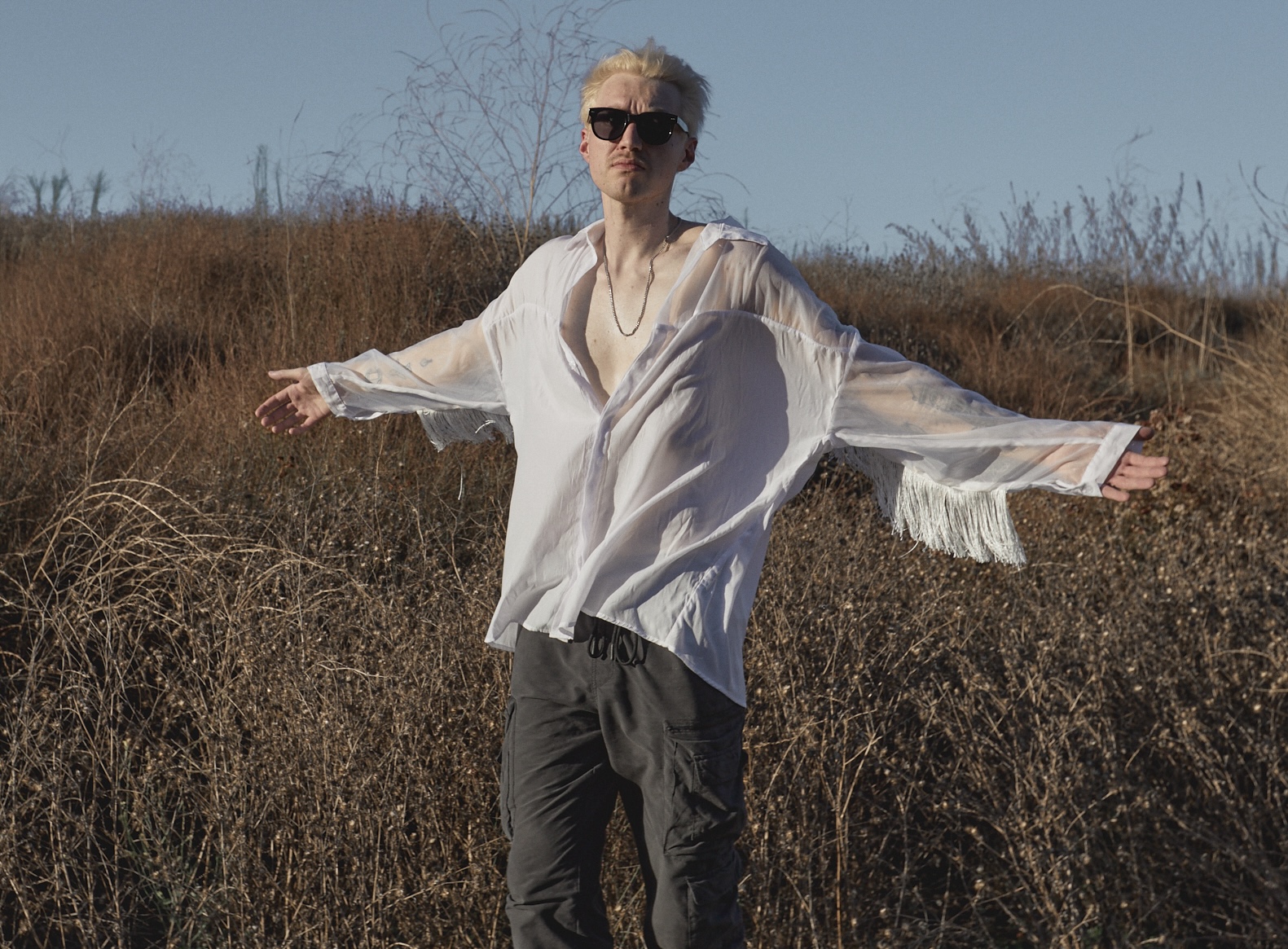
Stream Get Off The Internet on Spotify HERE.
CONNECT WITH ELIMINATE: SPOTIFY | INSTAGRAM | YOUTUBE | TIKTOK | SOUNDCLOUD | X | TWITCH
Catch Eliminate’s live showcase at Red Rocks Amphitheater during Ganja White Night’s Wobble Rocks in May and stay tuned for his upcoming 2024 tour HERE.
